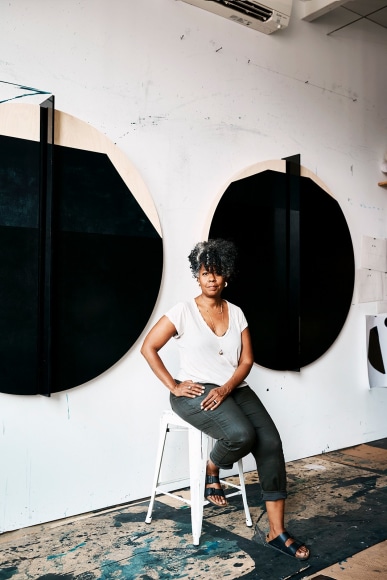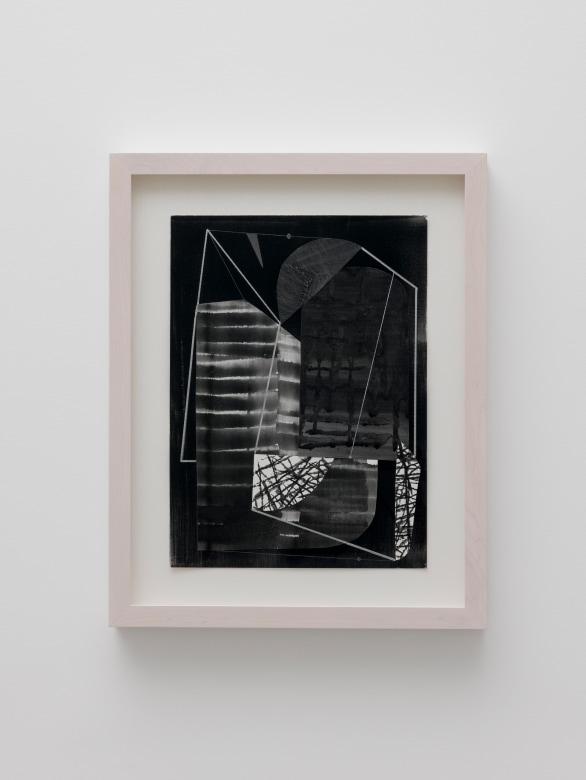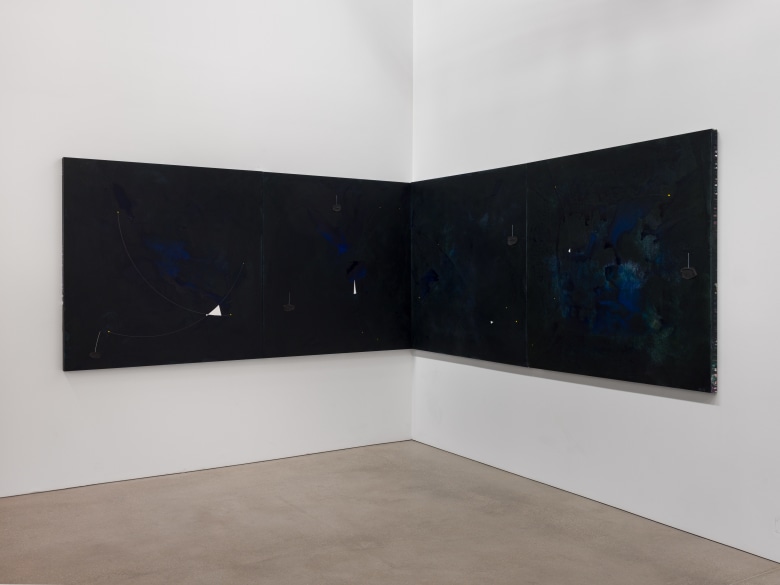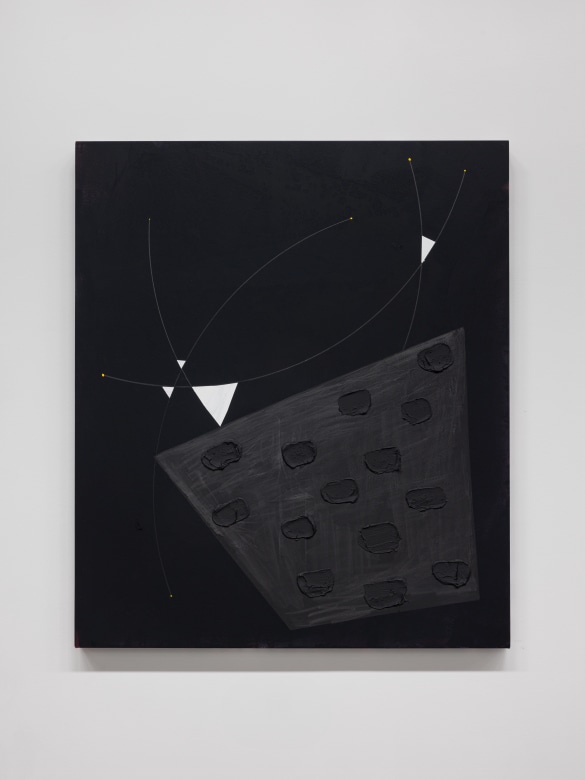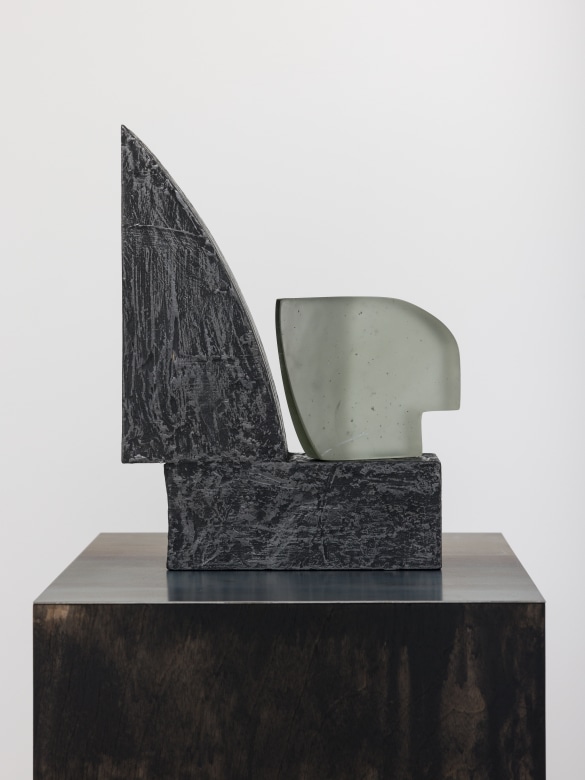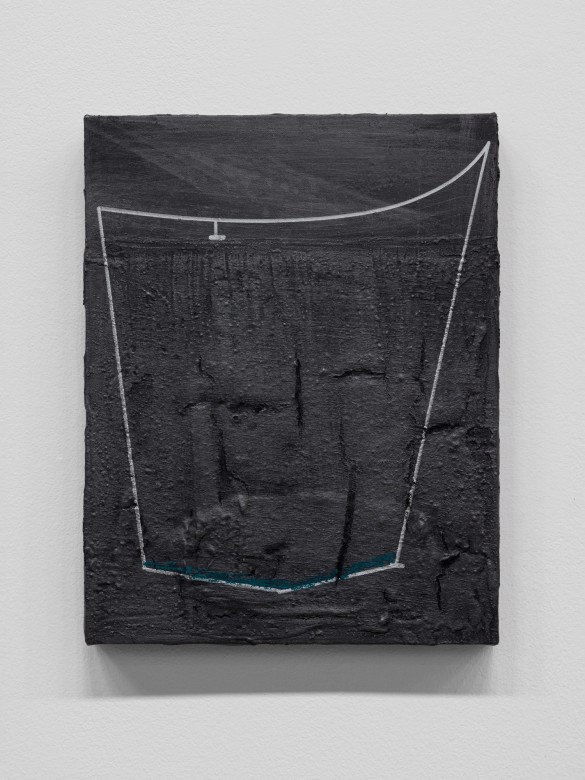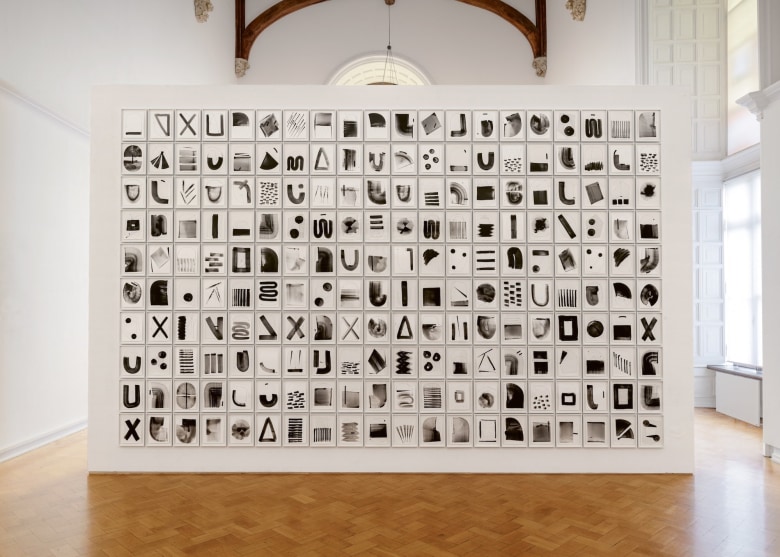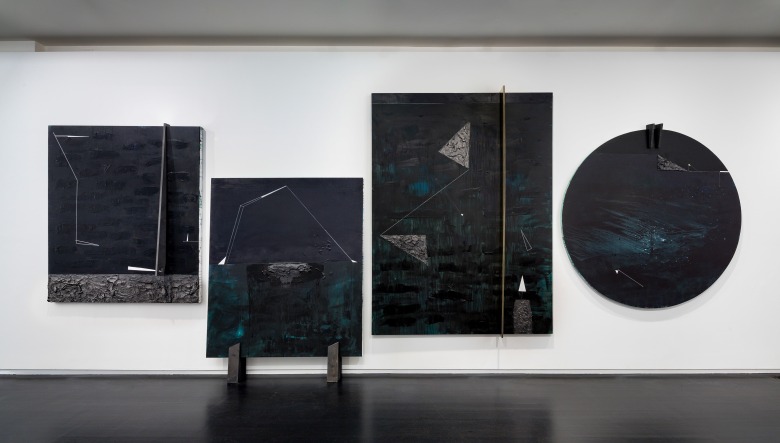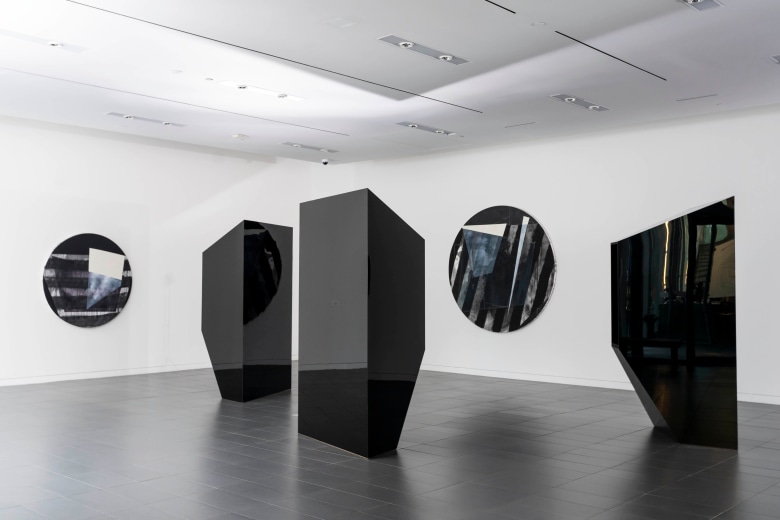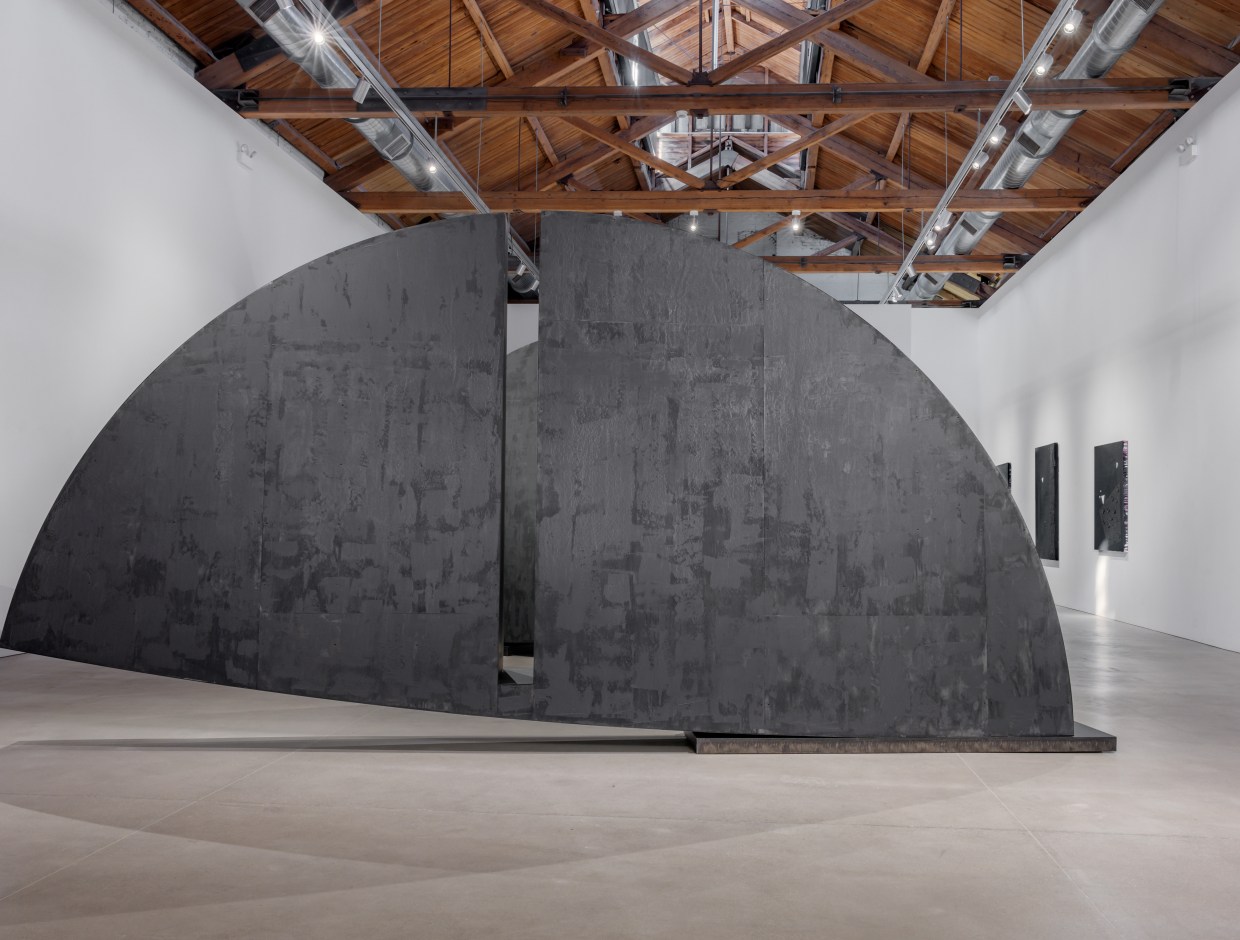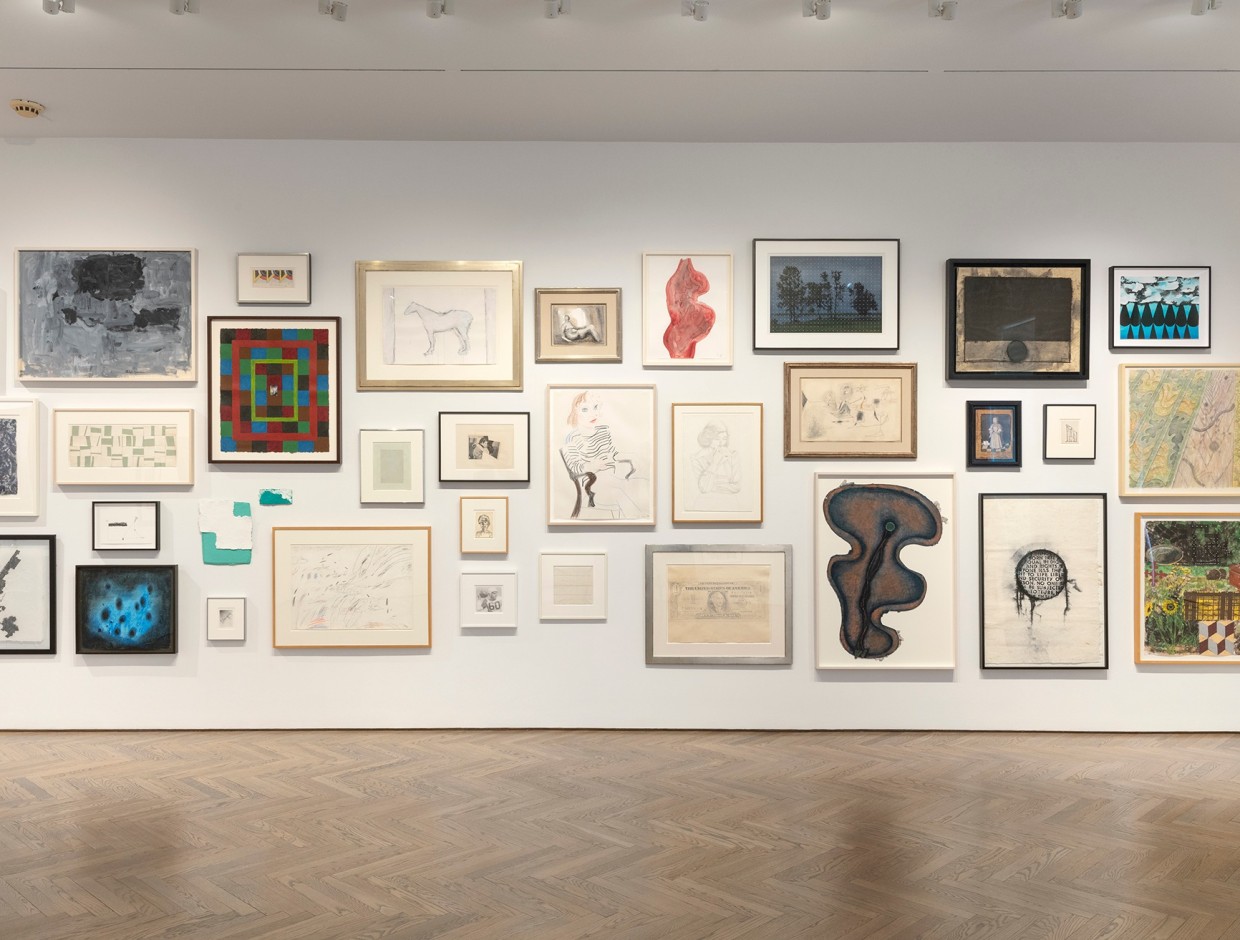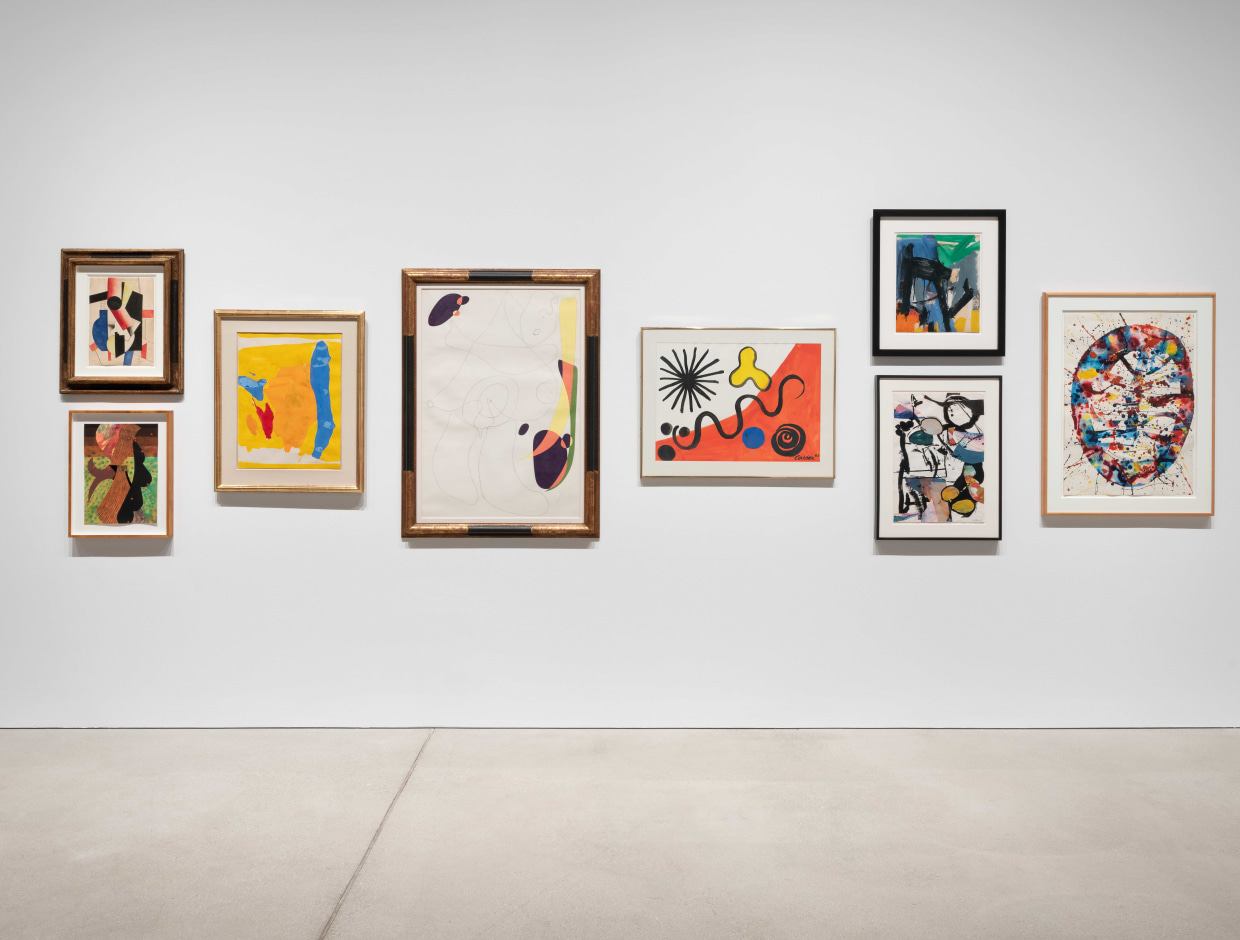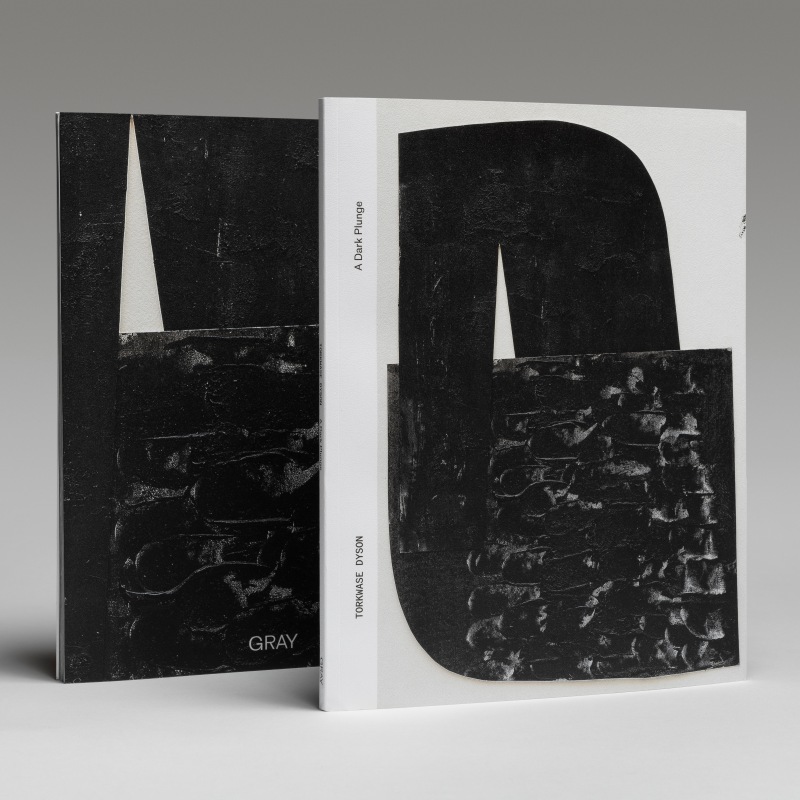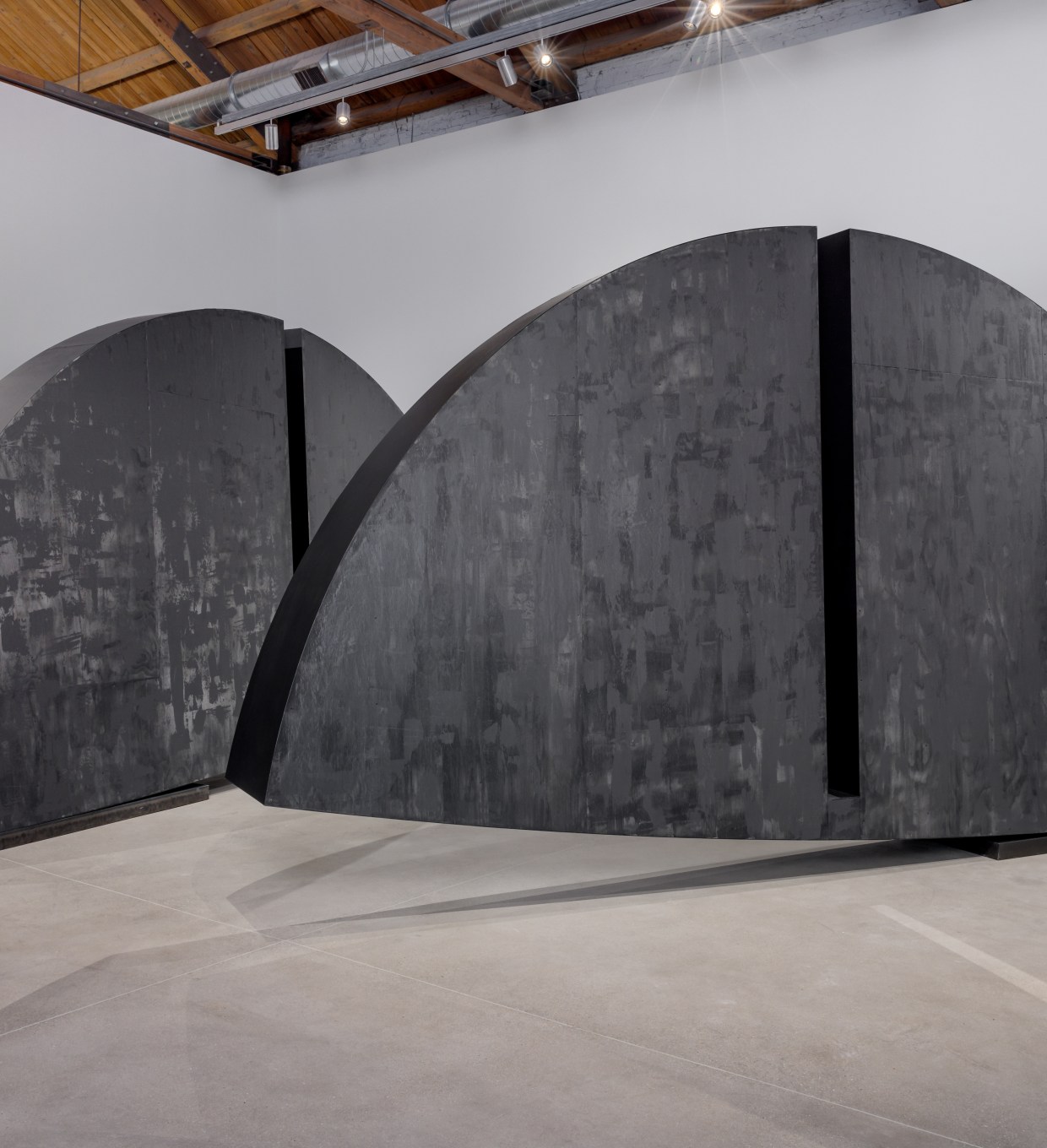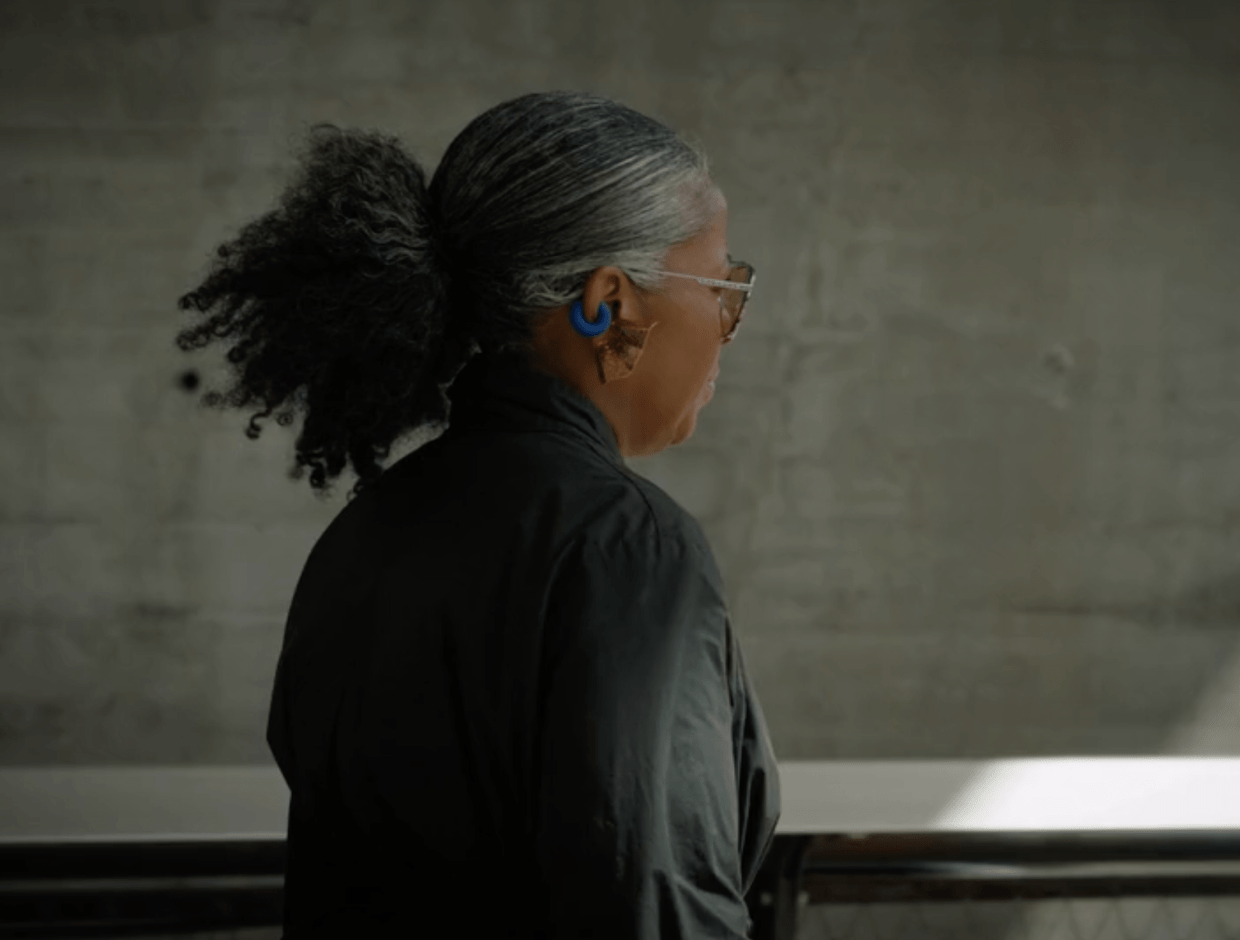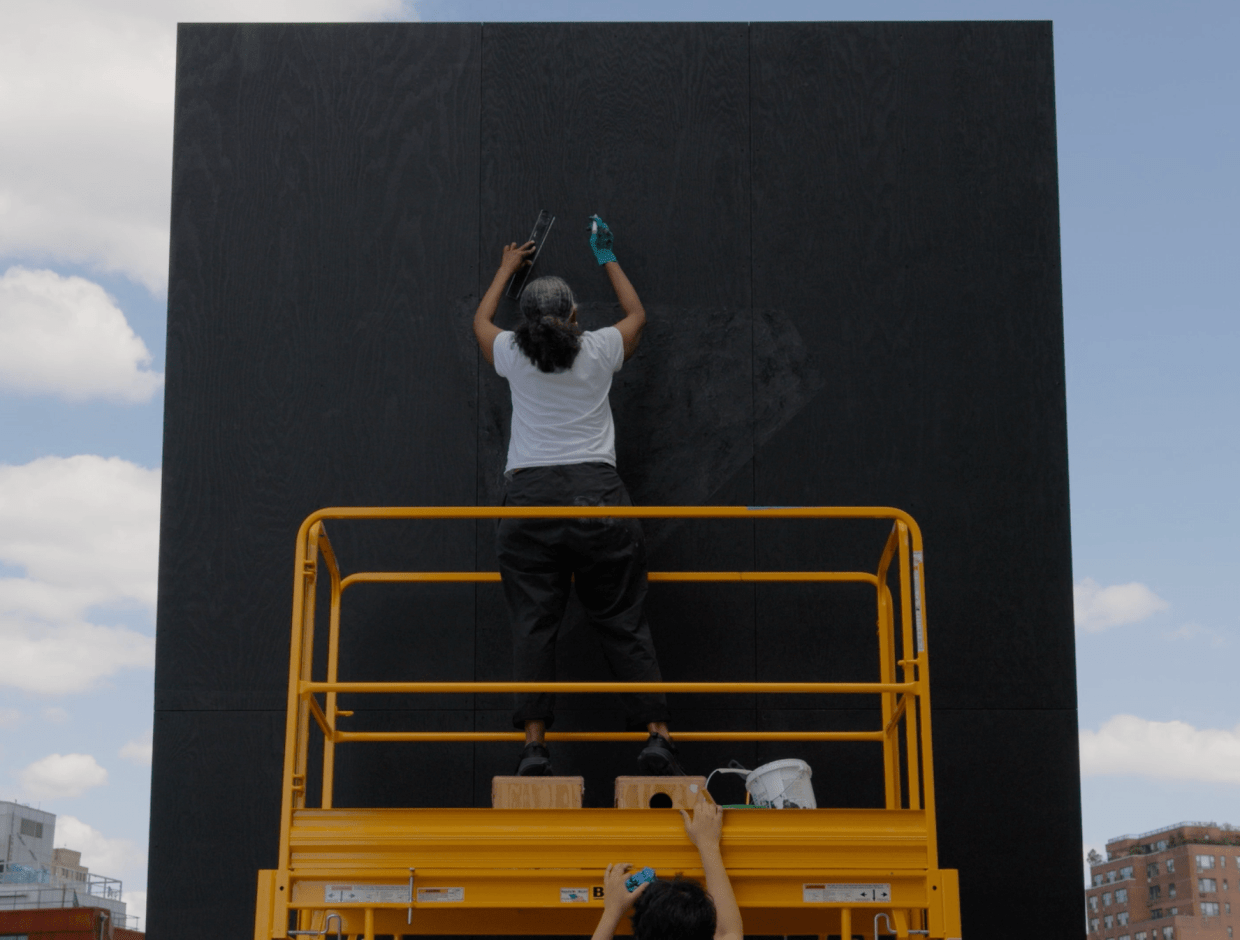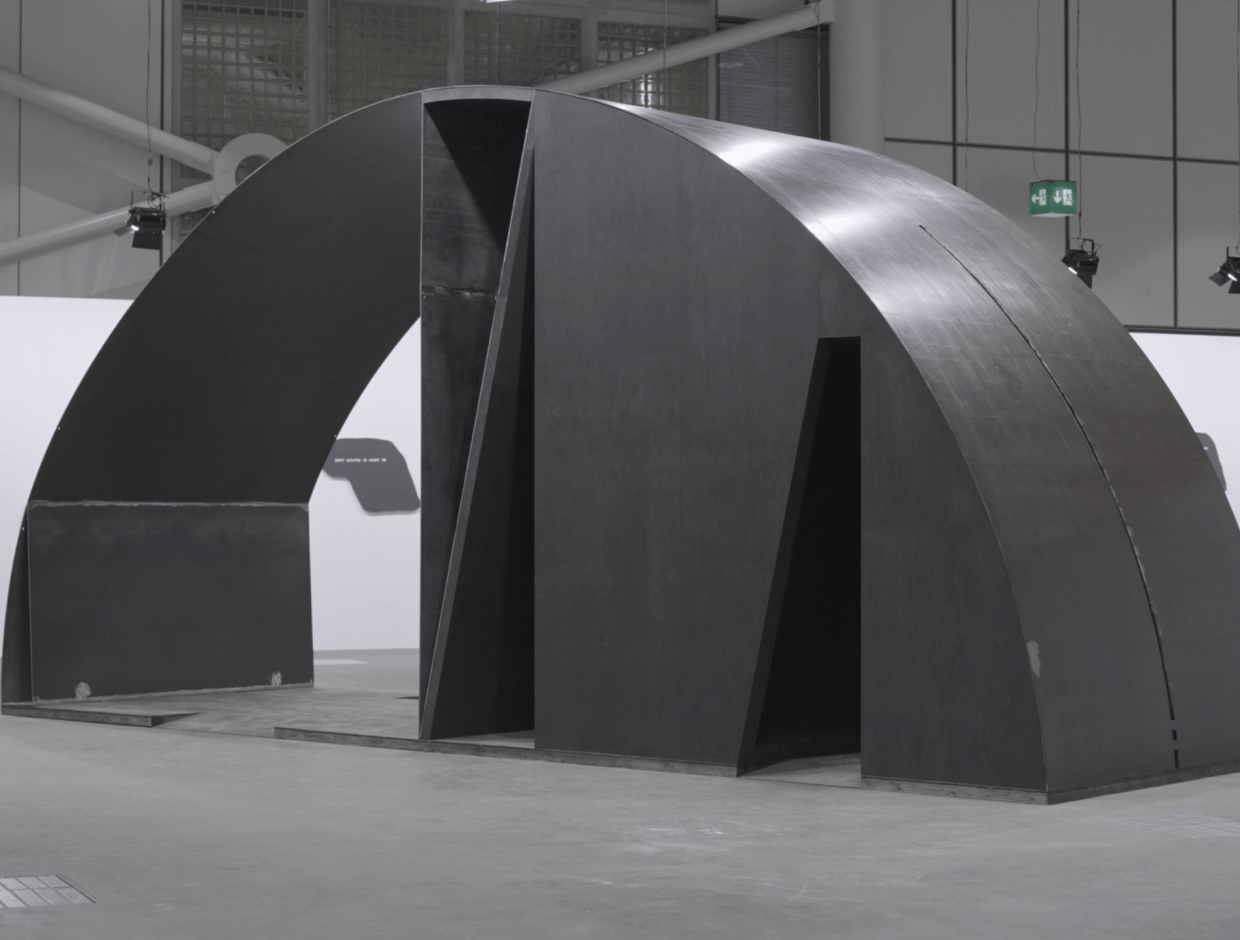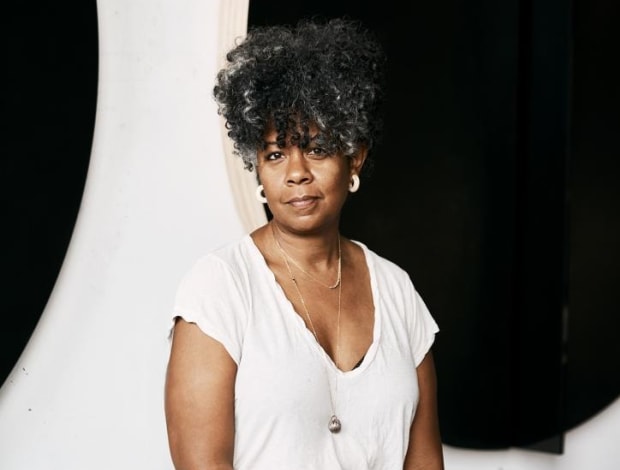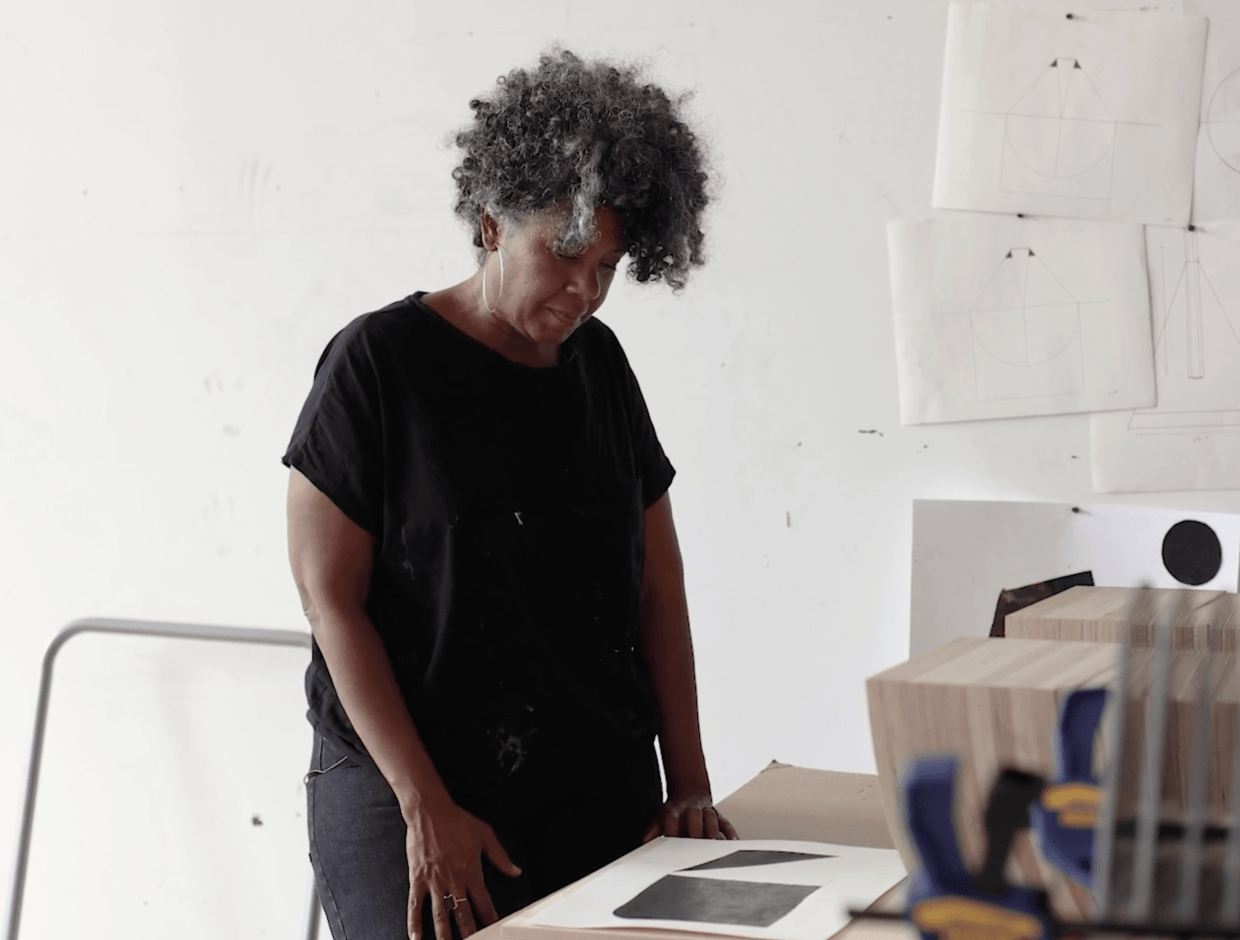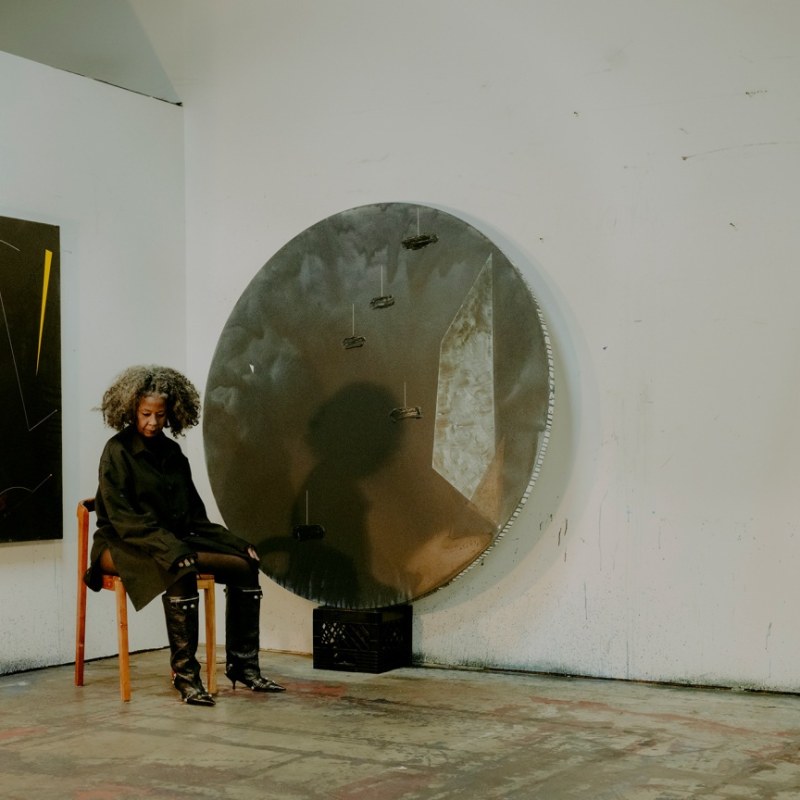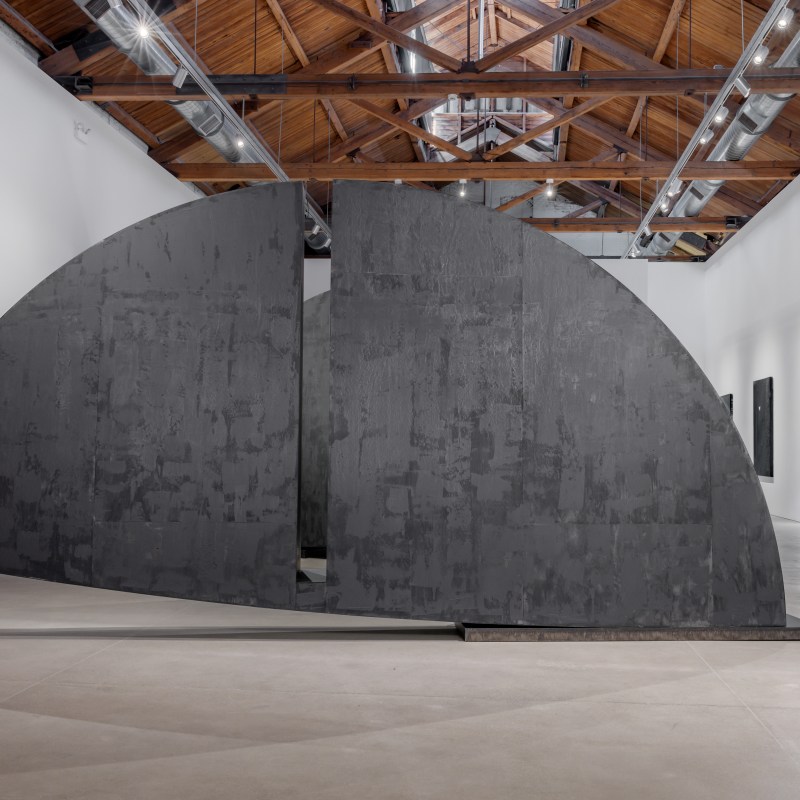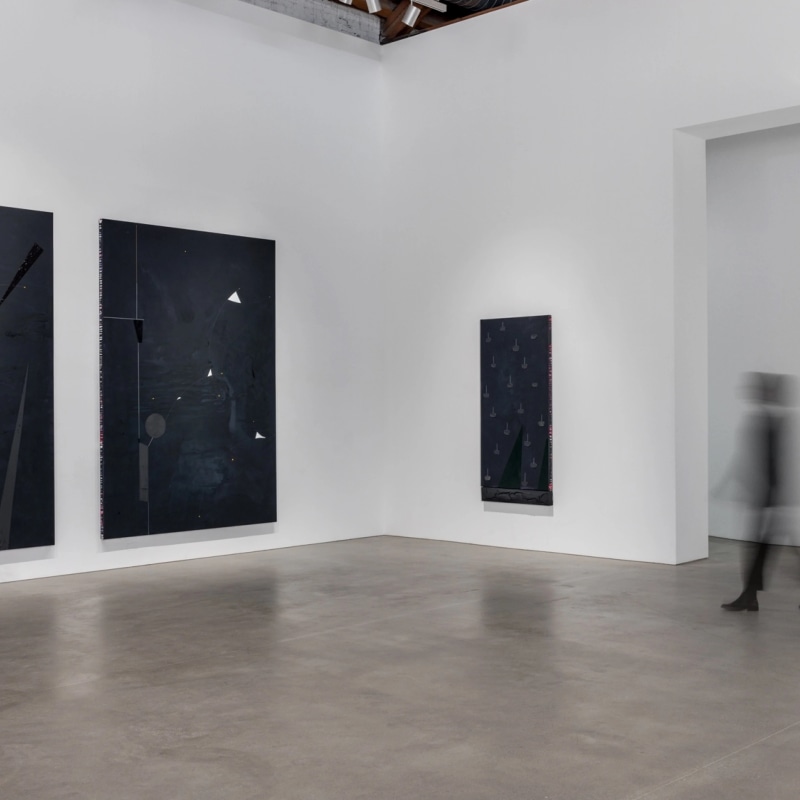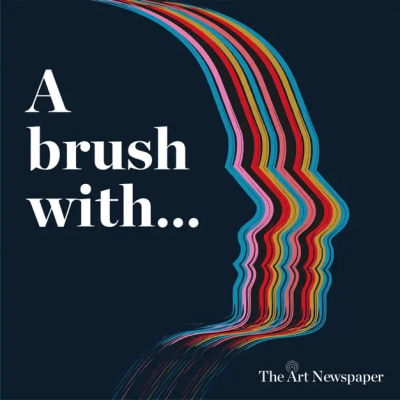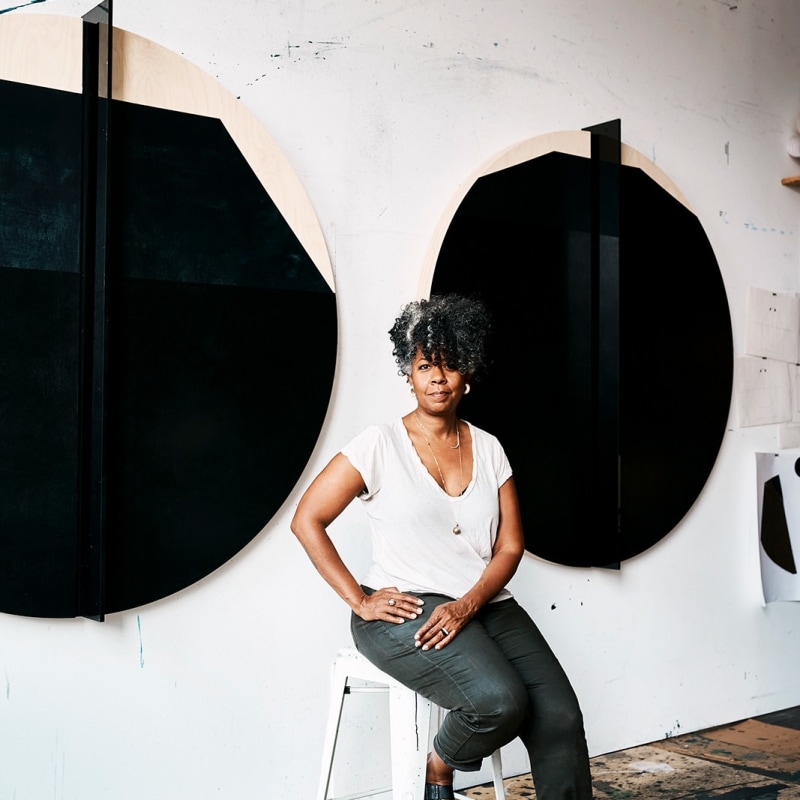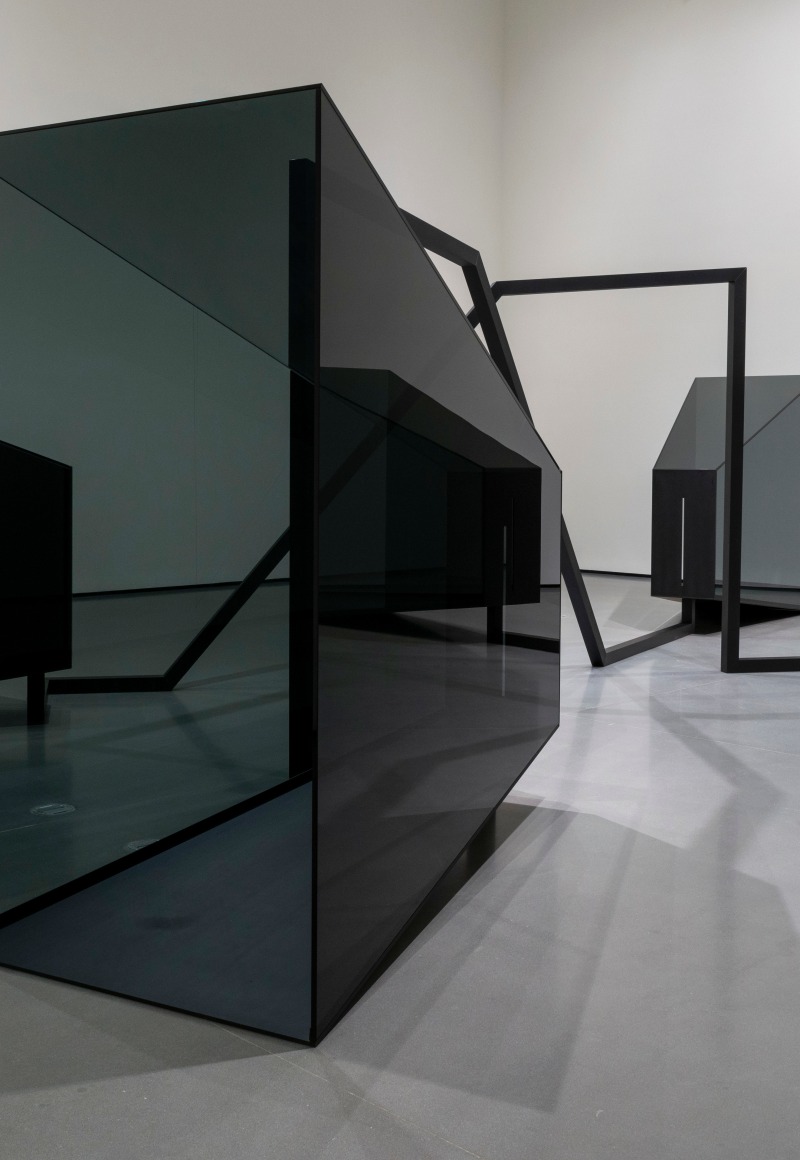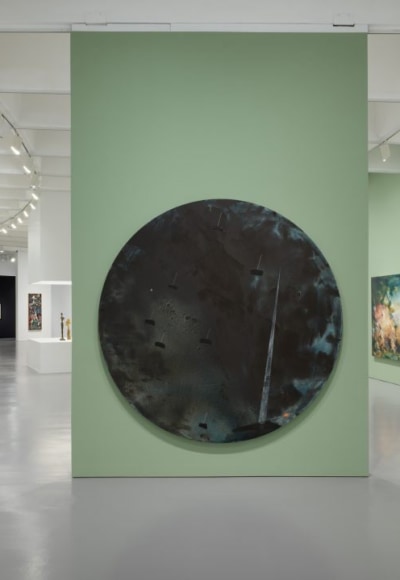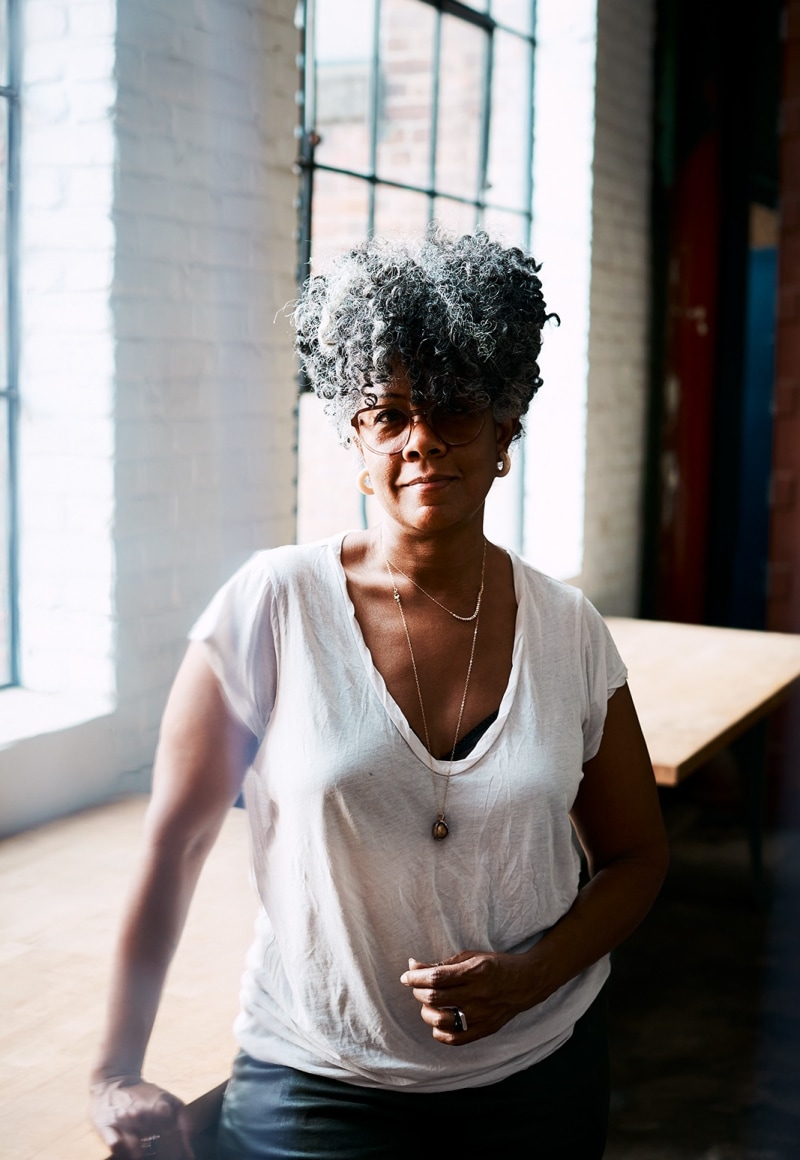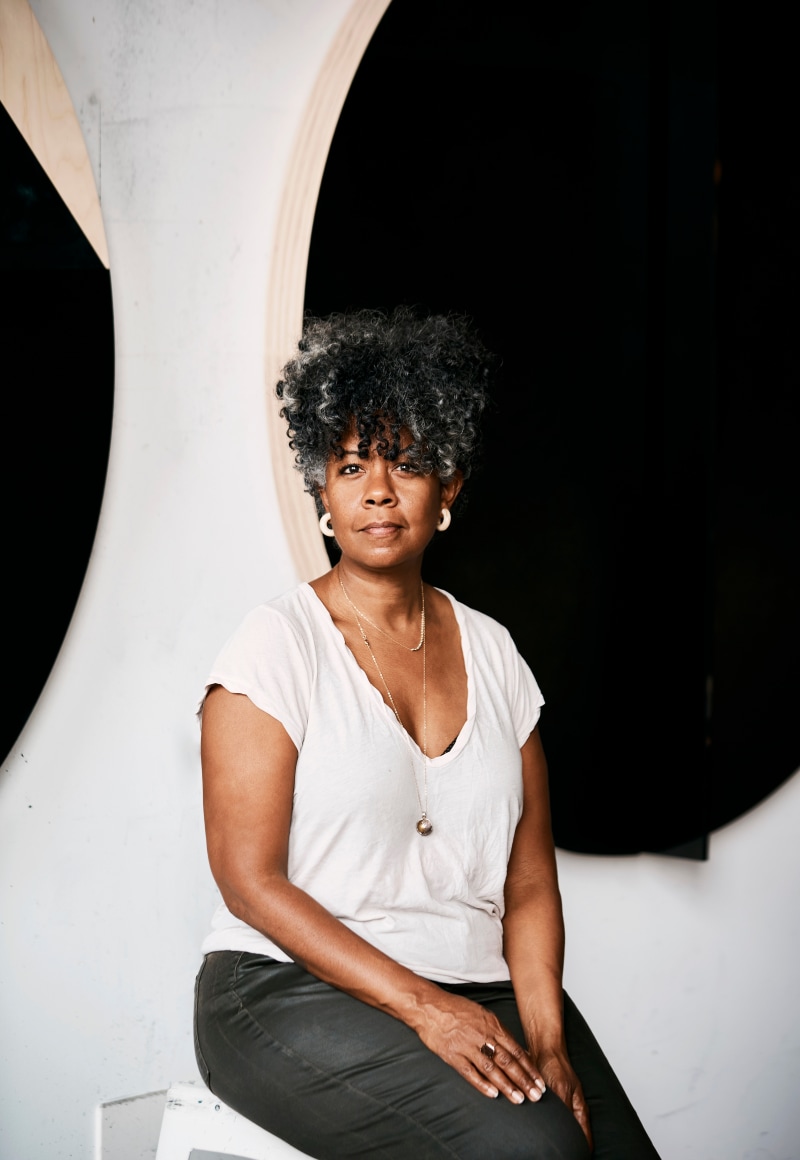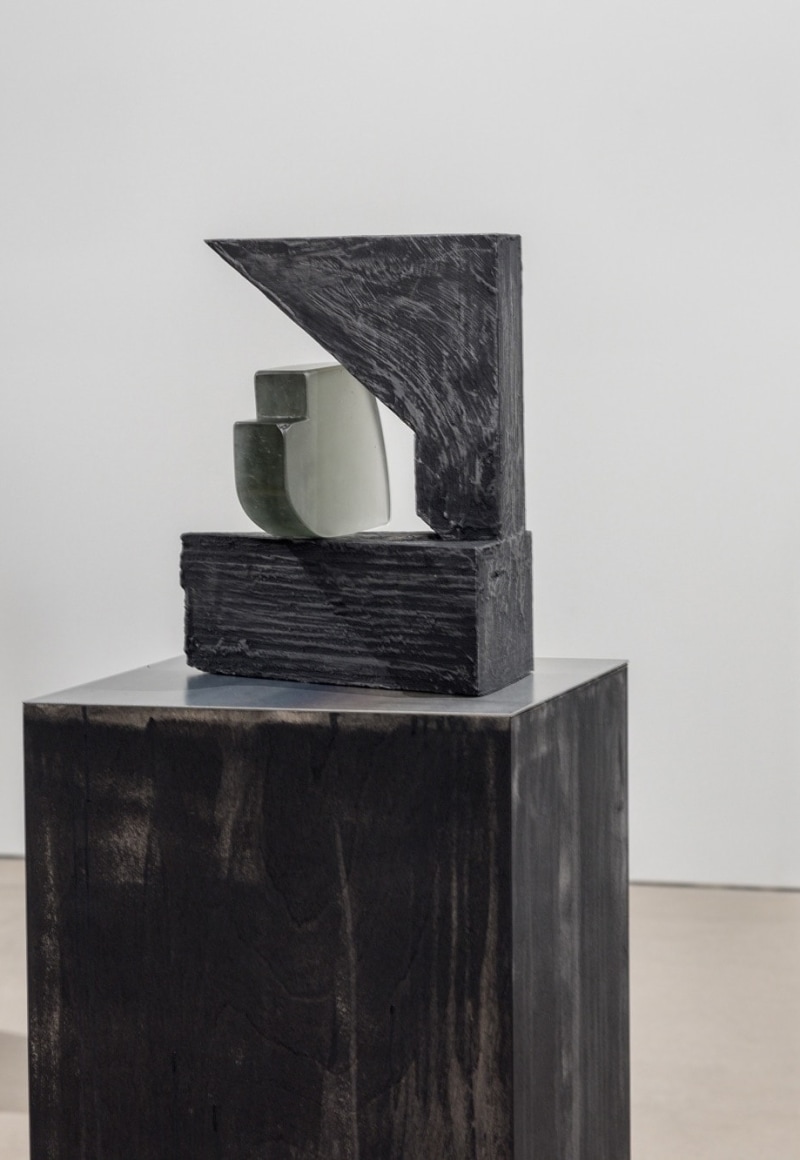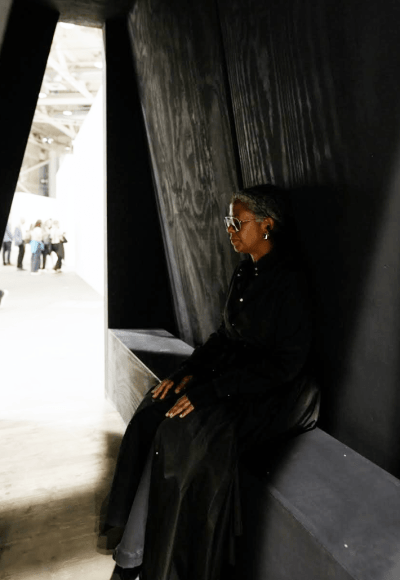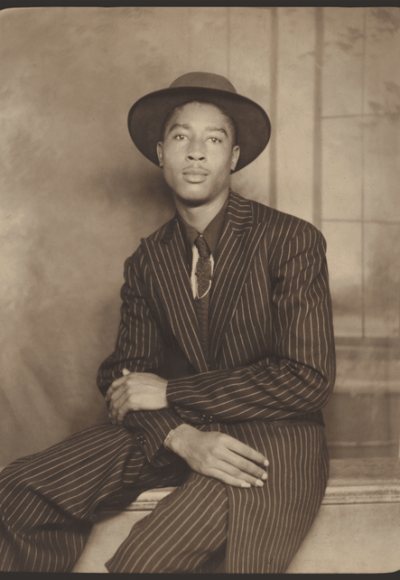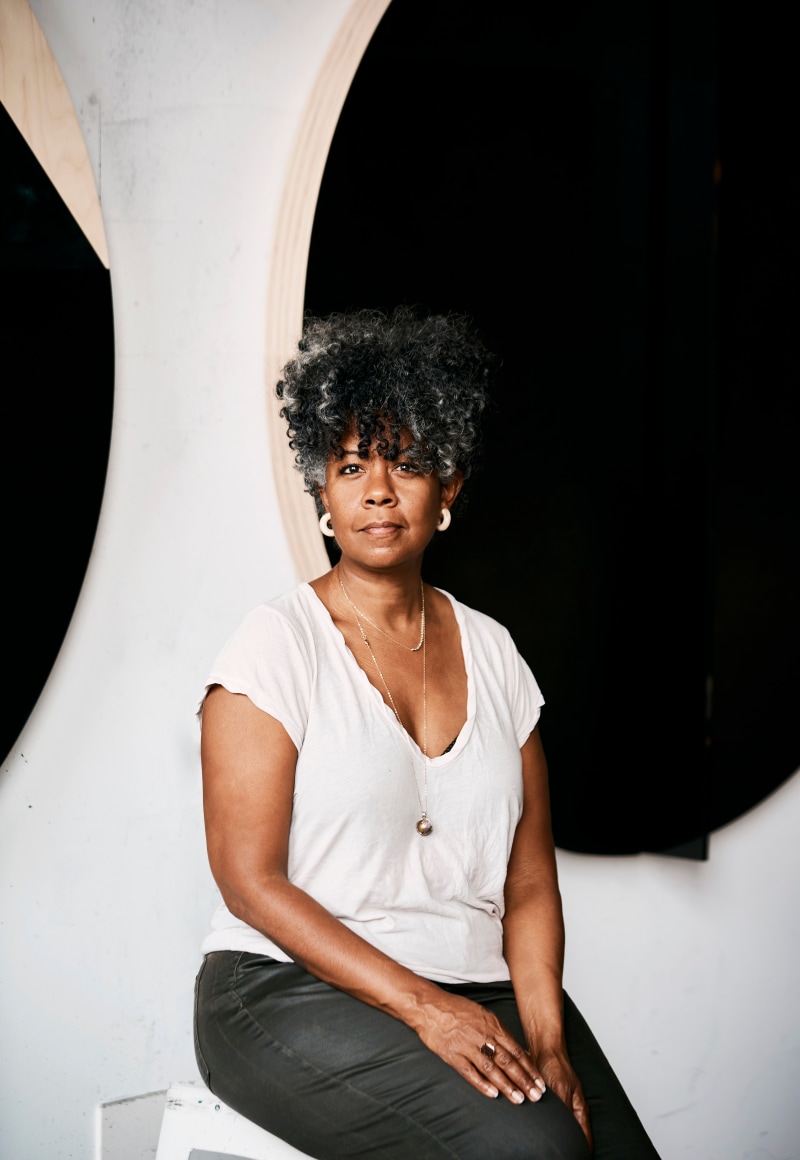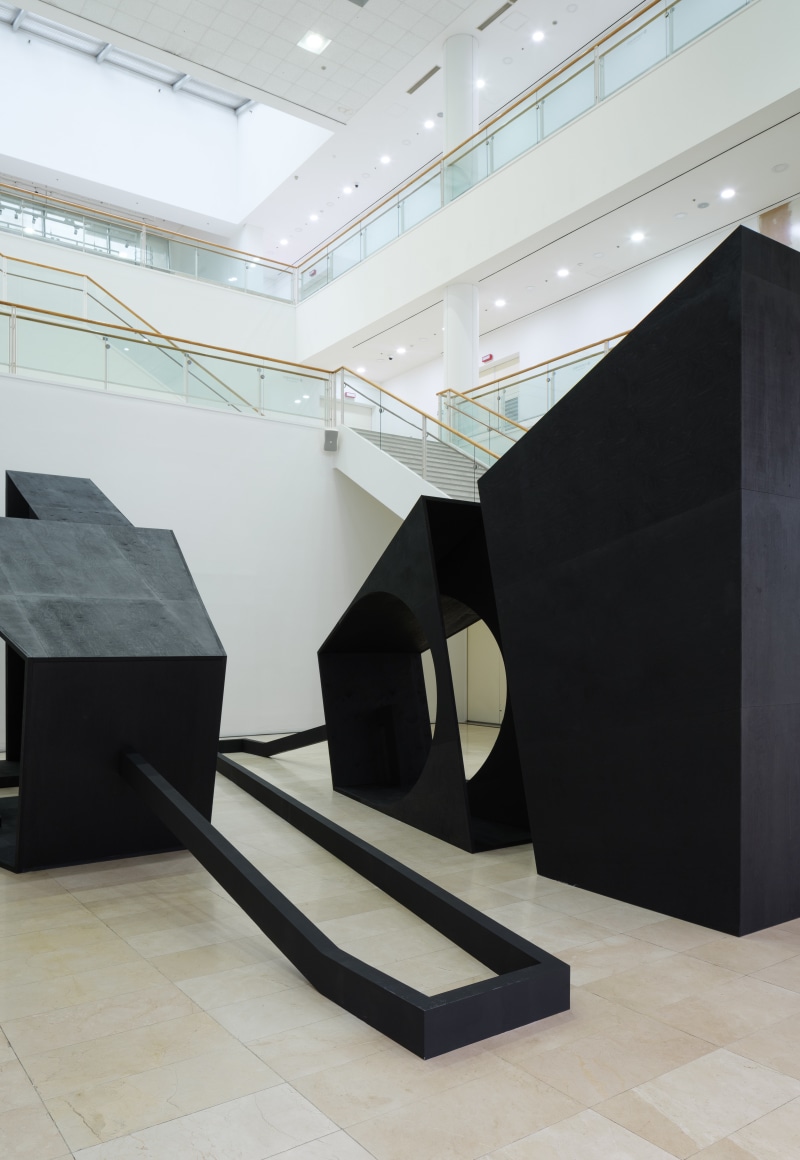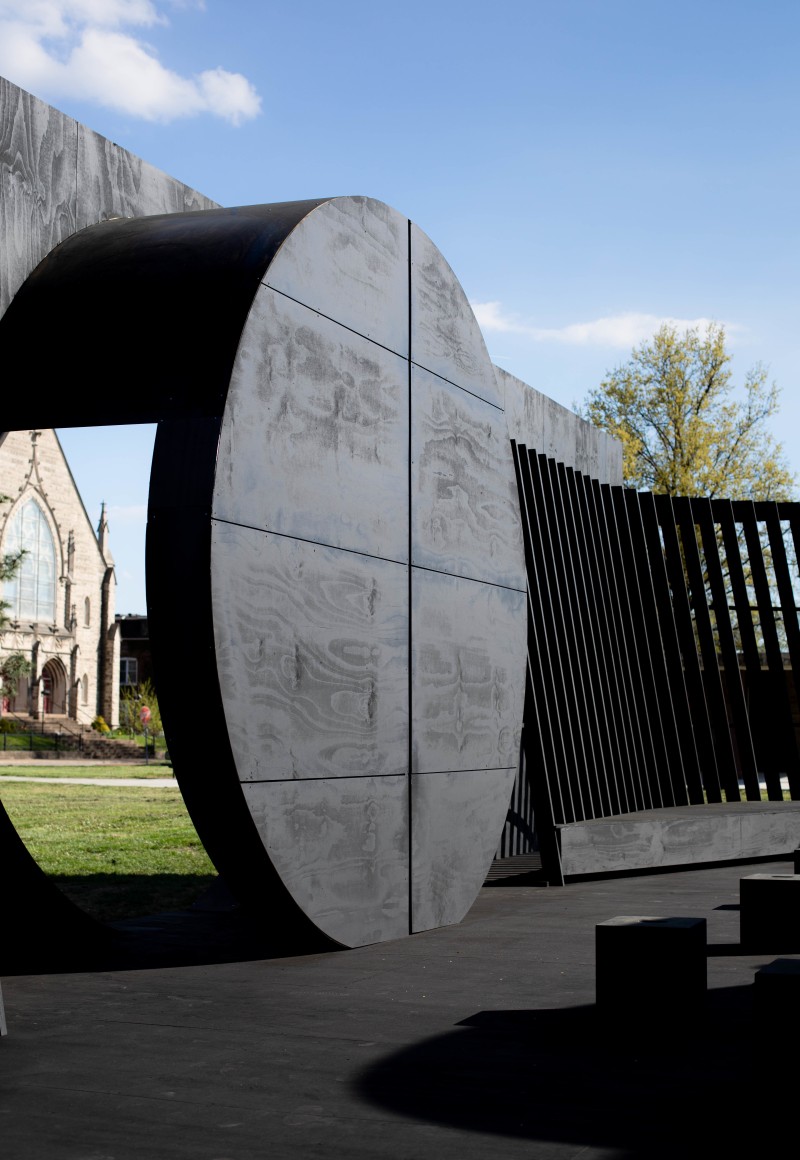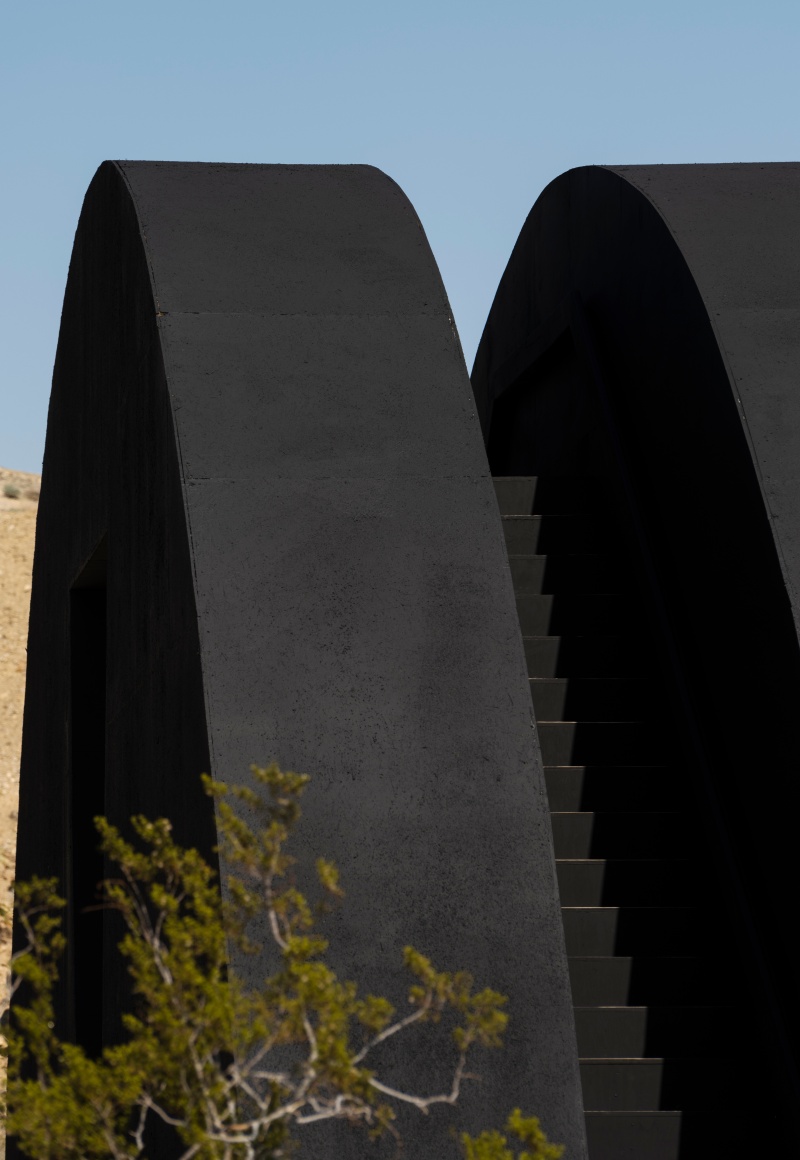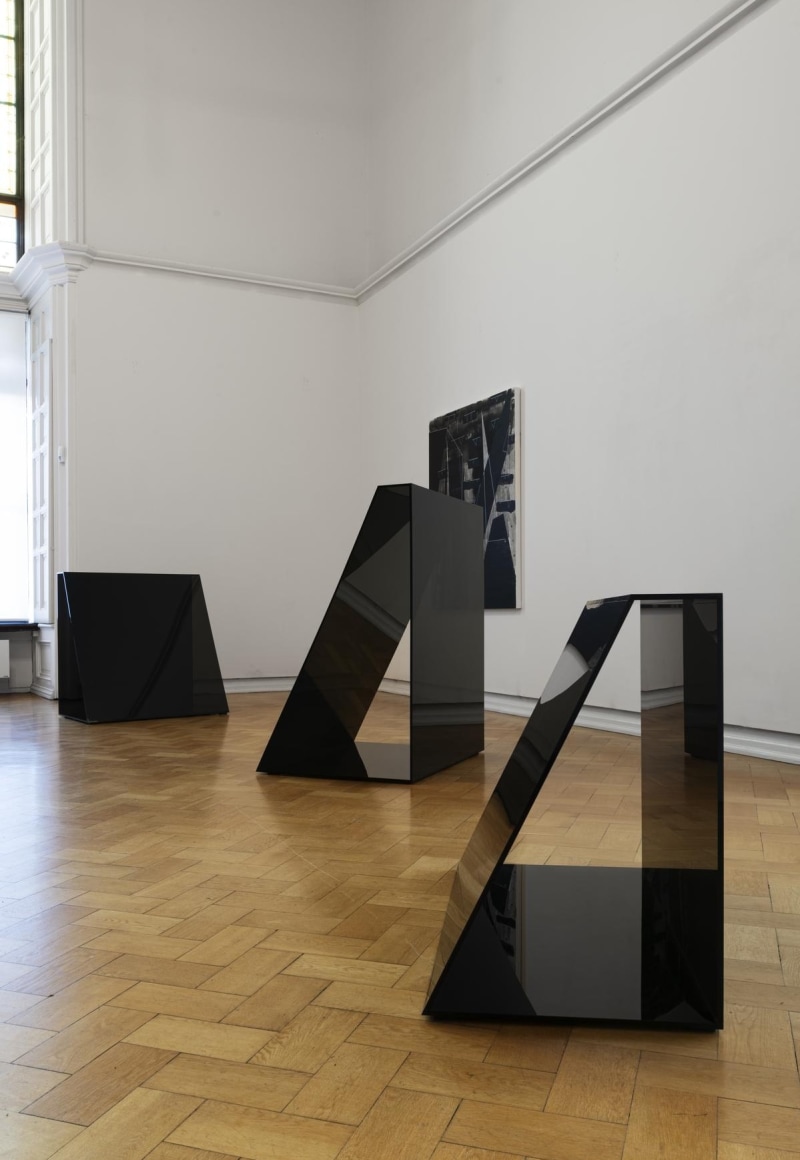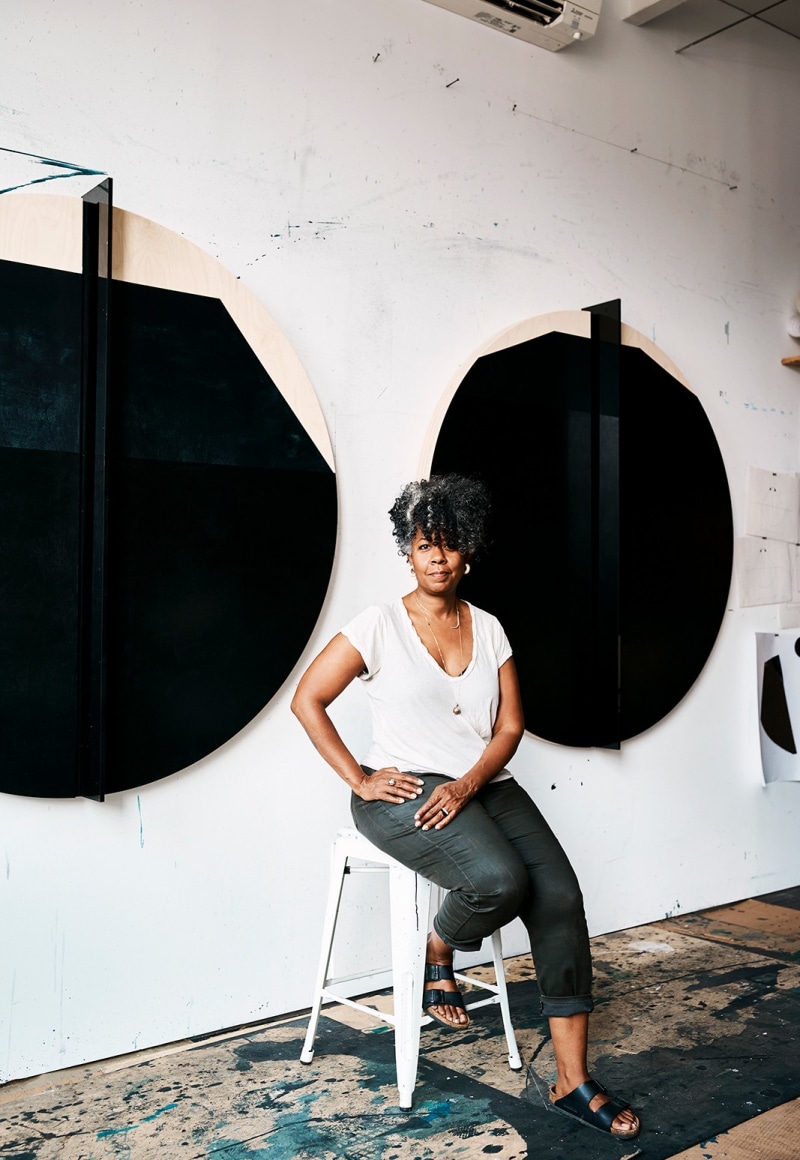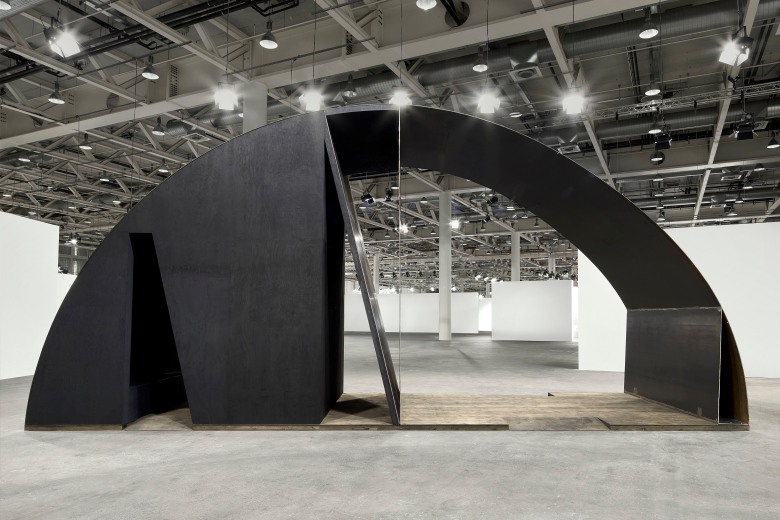
Working in painting, drawing, and sculpture, Torkwase Dyson (b. 1973 Chicago, IL; lives and works in Beacon, NY) combines expressive mark-making and geometric abstraction to explore the continuity between ecology, infrastructure, and architecture. Dyson deconstructs, distills, and interrogates the built environment, exploring how individuals, particularly black and brown people, negotiate, negate, and transform systems and spatial order. Throughout her work and research, Dyson confronts issues of environmental liberation and envisions a path toward a more equitable future.
Dyson studied sociology and social work at Tougaloo College, Mississippi, and received a Bachelor of Fine Arts in Painting from Virginia Commonwealth University and a Master of Fine Arts in Painting from Yale School of Art. Her work has been the focus of solo exhibitions at ‘T’ Space Rhinebeck, New York; Mildred Lane Kemper Art Museum, Missouri; New Orleans Museum of Art, Louisiana; Colby College Museum of Art, Maine; Graham Foundation for Advanced Studies in the Fine Arts, Chicago; Schuylkill Center for Environmental Education, Pennsylvania; Suzanne Lemberg Usdan Gallery, Vermont; Hall Art Foundation, Vermont; and Serpentine Galleries, London. Group exhibitions and biennials include the Liverpool Biennial, Liverpool; Bienal de São Paulo, São Paulo; Desert X, California; California African American Museum, Los Angeles; The Museum of Modern Art, New York; the Studio Museum in Harlem, New York; Whitney Museum of American Art, New York; The Drawing Center, New York; Corcoran School of the Arts and Design, Washington DC; the Smithsonian National Museum of African Art, Washington, DC; and the Wexner Center for the Arts, Ohio, among others.
Public collections include the Art Institute of Chicago, Illinois; Hall Art Foundation, Vermont; Hirshhorn Museum and Sculpture Garden, Washington DC; The Long Museum, Shanghai; Mead Art Museum, Amherst College, Massachusetts; Mildred Lane Kemper Art Museum, St. Louis, Missouri; Smith College Museum of Art, Massachusetts; Smithsonian National Museum of African American History & Culture, Washington, DC; The Studio Museum in Harlem, New York; and Williams College Museum of Art, Massachusetts.
For more information and available works, inquire here.

